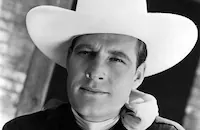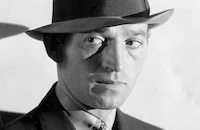Make a Million
Cast & Crew
Lewis D. Collins
Charles Starrett
Pauline Brooks
George E. Stone
James Burke
Guy Usher
Film Details
Technical Specs

Synopsis
At Pelton University, Economics student Irene Corning, whose wealthy father has endowed the university, disagrees with radical professor Reginald Q. Jones. Jones has assembled an organization, the "World Improvement League," which publishes his theories. Irene is failing Jones's class and will not be able to graduate, so she denounces him as a subversive, and her father pressures the university to place Jones on unpaid leave. Jones must prove his "redistribution of wealth" theory by becoming a millionaire before he can return to teaching. Out to test his theory, Jones joins Pete, a panhandler, and after learning a few trade secrets, he begins an advertising campaign to become the first millionaire made by public donation. Jones plans to use the money to benefit the donors. Larkey, a reporter assigned by newspaper tycoon Moxey to portray Jones as a Communist, changes his mind, and makes Jones out as a hero and Marxie as a villain. The public response to Jones's campaign is overwhelming, but after Jones deposits $25,000 in Corning's bank, he is arrested for mail fraud and is forced to place the money under the auspices of the World Improvement League. As the deadline for Jones to secure the million dollars approaches, he agrees to sponsor a Nervo toothpaste radio broadcast. Although Corning tries to prevent the broadcast, Irene has fallen in love, and she drives Jones to Chicago for the show. Jones broadcasts his show and is able to raise the money. Jones uses the money to improve the economy as well as to make himself a multi-millionaire. In his brand new skyscraper, Jones and Irene confess their love to one another.

Director
Lewis D. Collins
Cast

Charles Starrett
Pauline Brooks

George E. Stone

James Burke
Guy Usher
Norman Houston
Monte Carter
Jimmie Aubrey
George Cleveland
John Elliott
Crew

Film Details
Technical Specs

Quotes
Trivia
Notes
Ads for the film and contemporary reviews commented that the plot reflected the chain-letter craze popular in the United States at the time. The Variety review credits Milton Krasner with photography, although Harry Neumann is credited on the screen. The Film Daily review credits Carl Pierson with editing, although Jack Ogilvie is listed on the screen.












